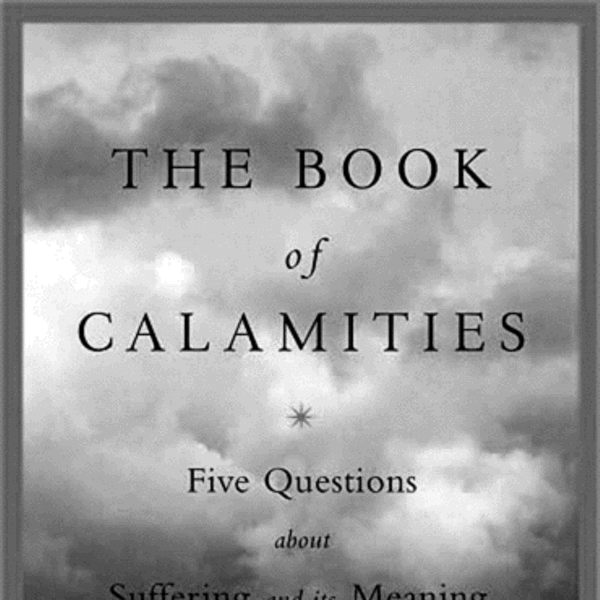Esteemed Reader of Our Magazine:
Once I sat with a man whose legs had lost circulation and were becoming gangrenous. He was at once confronted with the immediate pain of his dying flesh and the present prospect of amputation. “I am in so much pain,” he said, his eyes clenched. His voice was expressed agony and was full of loneliness. He felt all alone in his suffering. Since he was my grandfather, whom I loved, I felt his pain keenly. I shared it. “Everyone is suffering, Grandpa,” I said. Some moments passed, his grimace relaxed a little, and he opened his tired blue-gray eyes. “You are right,” he said. “I know.”
In the depths of suffering—be it caused by rotting limbs or a jilting lover or the devastation of a bomb—one can find the realization that suffering is universal. It is not my suffering. Rather it is as though I am dipping my ladle into a seething, inexhaustible crock of pain that is shared by all. Everyone, everywhere—even every living thing—is suffering.
Avoiding suffering is the most automatic tendency of a living organism. It points out the signposts for survival. Suffering illuminates the necessities that bear invention. The intrinsic urge of life is to fight or flee suffering. Barring these possibilities there is adaptation.
For people the story is slightly different from that of plant and animal life-forms. Because of our friend and foe, Imagination, a lot of our suffering is based on illusion. We fear a stick that looks like a snake. We prepare desperate futures by resenting and clinging to painful pasts. Our capacity to remember and generate images produces a phantasmagoric prison of delusion—what might be called Hell.
But our minds can lead us to an equally present Heaven. Our mental capacity affords another approach to suffering. We can enter it, experience it, be in it but not of it. We can accept, transcend, and transmute suffering. We can let it tenderize and work on us and instead of making us tough and cruel. We can allow suffering to make our being more resilient.
The first step in the process of making suffering useful is acceptance. Things are the way they are. Everything is perfect and lawful. Rather than changing “things” to alleviate my suffering, I can take responsibility for my reaction to the objects, people, and events that aren’t arranged to my liking. Study the pain. Separate the emotional and physical signs. Find the root-tension of the suffering and allow it to relax. And then inspect the ideas associated with the suffering. We have no place imposing a personal agenda on situations that are infinitely larger than we can hope to perceive.
Perhaps you are thinking that this approach is too passive—that there is an imperative to take action against injustice, be it inflicted on others or ourselves. And I will not disagree. Rather I suggest taking action only when it can be taken freely, without the compulsion to fight or flee our own discontent.
Step two of this approach to suffering is to take action to alleviate the suffering of others. And not merely to remove the external difficulties that produce the suffering (in the same way that we would strive to remove our own difficulties) but to actually experience the suffering of others. Only from this empathic standpoint can we be in a position to be of assistance. In fact the word compassion literally means “to suffer with.”
At 33 years Jesus was crucified. His is among the most honorable human deaths on record (no, I have not—nor will I—see Mel Gibson’s movie). Accepting its inevitability, Jesus chose his suffering, and he suffered for the benefit of all. In so doing he made an infinite, eternal sound that reverberated deep into time and space. For this, Jesus is among my heroes. As well the image of crucifixion is a beautiful illustration of what it is to accept the circumstances of the life we are dealt.
At 33 I am crucified on the reality of a life that has fulfilled me less than I expected. It is difficult in ways and to degrees that I never could have imagined. But the only way is forward, the only question, how. Getting out or avoiding anything is not an option, nor is vanquishing the difficulties by force. They can only met with the flexibility of a reed, which is resilient but able to bend to whatever form is necessary.
No one’s life is exactly right. Everyone suffers difficulties, disillusion, dissatisfaction, and pain. Events yield less than we had hoped for. This is true for everyone in every circumstance, even (as the Buddha summarily states) for every sentient being. It is how we approach the suffering that determines whether it will be useless or useful suffering.
John Keats wrote in a letter to a friend, “Do you not see how necessary a world of pains and troubles is to school an Intelligence and make it a Soul? A place where the heart must feel and suffer in a thousand diverse ways.”
—Jason Stern














